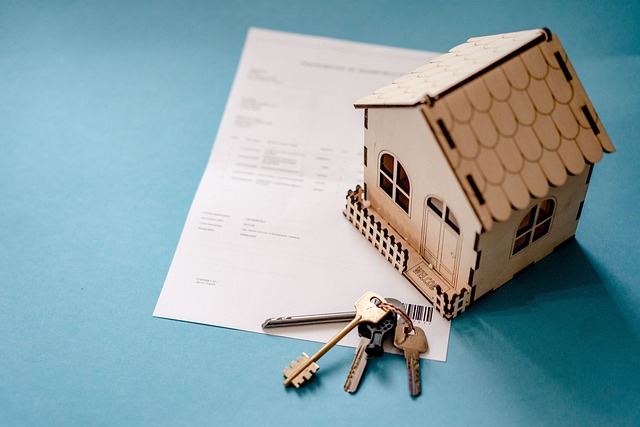A Guide to FHA Loans: Accessible Homeownership for Buyers with Low Credit Scores
Federal Housing Administration (FHA) loans have transformed homeownership opportunities for millions of Americans who might otherwise struggle to qualify for conventional mortgages. These government-backed loans offer a pathway to homeownership with more flexible credit requirements, lower down payments, and accessible qualification criteria. Whether you're a first-time buyer or someone rebuilding your credit, understanding how FHA loans work can open doors to achieving your homeownership dreams without the traditional barriers that conventional loans often present.

Understanding FHA Loan Basics
FHA loans are mortgage products insured by the Federal Housing Administration, a division of the U.S. Department of Housing and Urban Development. Unlike conventional loans issued directly by banks, FHA loans are originated by approved lenders but backed by government insurance. This insurance protects lenders against losses if borrowers default, enabling them to offer more lenient qualification requirements.
The program was established in 1934 to stimulate the housing market during the Great Depression and continues to serve as a vital tool for expanding homeownership access. FHA loans can be used to purchase single-family homes, multi-unit properties up to four units, condominiums, and manufactured homes. The government backing allows lenders to accept borrowers who might not qualify for conventional financing due to credit challenges or limited savings.
What Credit Score Requirements Apply for FHA Loans?
One of the most attractive features of FHA loans is their flexible credit score requirements. While conventional loans typically require credit scores of 620 or higher, FHA loans accept borrowers with scores as low as 500. However, the down payment requirement varies based on your credit score.
Borrowers with credit scores of 580 or higher can qualify for the minimum down payment of 3.5 percent. Those with scores between 500 and 579 must provide a 10 percent down payment. Some lenders may impose higher credit score requirements than the FHA minimum, so shopping around with different approved lenders is advisable.
Even with damaged credit, FHA loans consider compensating factors such as steady employment history, substantial cash reserves, or low debt-to-income ratios. Recent bankruptcy or foreclosure doesn’t automatically disqualify applicants, though waiting periods apply depending on the circumstances.
What Down Payment Options and Assistance Programs Are Available?
The 3.5 percent minimum down payment requirement makes FHA loans particularly attractive to buyers with limited savings. For a $300,000 home, this means a down payment as low as $10,500, compared to the typical 10-20 percent required for conventional loans.
FHA loans also allow down payment funds to come from various sources, including gifts from family members, employer assistance programs, and down payment assistance programs offered by state and local governments. Many states and municipalities provide grants or low-interest loans specifically to help first-time buyers cover down payment and closing costs.
Additionally, FHA loans permit borrowers to use funds from 401(k) accounts or Individual Retirement Accounts (IRAs) for down payments without penalties in many cases. This flexibility in funding sources makes homeownership accessible to buyers who might struggle to save the larger amounts required for conventional financing.
Steps in the FHA Loan Application Process
The FHA loan application process follows similar steps to conventional mortgages but with some unique requirements. First, you’ll need to find an FHA-approved lender, as not all mortgage companies participate in the program. Pre-qualification helps determine your borrowing capacity and strengthens your position when making offers.
Documentation requirements include recent pay stubs, tax returns, bank statements, and employment verification. FHA loans require a professional appraisal to ensure the property meets safety and habitability standards outlined in HUD guidelines. Properties must pass inspection for structural soundness, safety, and livability.
Mortgage insurance is mandatory for all FHA loans, consisting of both upfront and annual premiums. The upfront premium equals 1.75 percent of the loan amount and can be financed into the mortgage. Annual premiums vary based on loan amount, down payment, and loan term, typically ranging from 0.45 to 1.05 percent annually.
Common Misconceptions About FHA Loans
Several myths persist about FHA loans that may discourage eligible buyers from considering this option. One common misconception is that FHA loans are only for first-time buyers. In reality, previous homeowners can use FHA financing, though some restrictions apply to owning multiple properties simultaneously.
Another myth suggests that FHA loans take longer to process or face more rejection from sellers. While FHA appraisal requirements are stricter than conventional loans, processing times are generally comparable. Some sellers may prefer conventional offers, but in competitive markets, a strong FHA pre-approval often carries equal weight.
Many people also believe that mortgage insurance on FHA loans is permanent. While annual mortgage insurance premiums continue for the loan’s duration if you put down less than 10 percent, borrowers can refinance to conventional loans once they build sufficient equity and improve their credit profiles.
FHA Loan Costs and Lender Comparison
Understanding the total cost of FHA loans helps borrowers make informed decisions. Interest rates on FHA loans are typically competitive with conventional mortgages, often slightly lower due to government backing. However, mortgage insurance adds to the overall cost.
| Lender Type | Interest Rate Range | Upfront MIP | Annual MIP | Processing Time |
|---|---|---|---|---|
| National Banks | 6.5% - 7.2% | 1.75% | 0.55% - 0.85% | 30-45 days |
| Credit Unions | 6.3% - 7.0% | 1.75% | 0.55% - 0.85% | 35-50 days |
| Online Lenders | 6.4% - 7.1% | 1.75% | 0.55% - 0.85% | 25-40 days |
| Mortgage Brokers | 6.3% - 7.3% | 1.75% | 0.55% - 0.85% | 30-45 days |
Prices, rates, or cost estimates mentioned in this article are based on the latest available information but may change over time. Independent research is advised before making financial decisions.
FHA loans represent a valuable path to homeownership for buyers who might not qualify for conventional financing. With flexible credit requirements, low down payment options, and various assistance programs available, these government-backed loans continue to help Americans achieve their homeownership goals. While mortgage insurance adds to the overall cost, the accessibility and flexible qualification criteria make FHA loans an excellent option for many buyers. By understanding the requirements and working with experienced FHA-approved lenders, eligible borrowers can navigate the process successfully and secure affordable financing for their homes.




